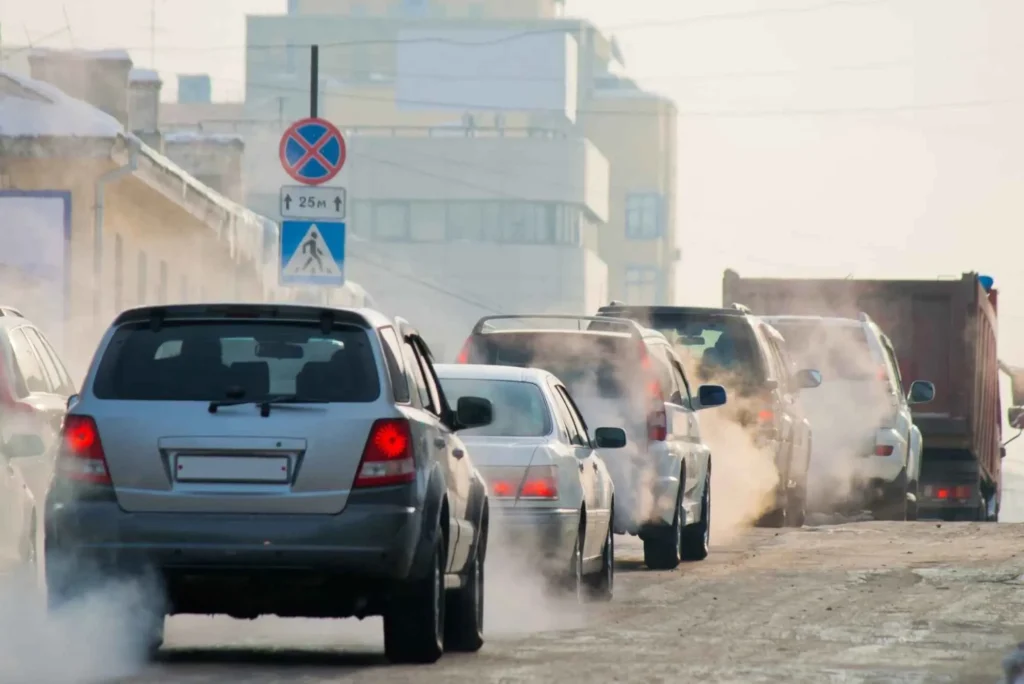How Automobiles Cause Air Pollution
The ubiquitous presence of automobiles has transformed modern society, offering unparalleled convenience in transportation. However, this convenience comes at a cost. The combustion engines powering cars, trucks, and other vehicles emit pollutants that degrade air quality and pose significant health and environmental risks.
Understanding Vehicle Emissions
Types of Pollutants
Combustion Byproducts
From carbon monoxide (CO) to nitrogen oxides (NOx) and volatile organic compounds (VOCs), combustion engines produce a cocktail of harmful pollutants. These substances not only contribute to smog formation but also have adverse effects on human health, including respiratory issues and cardiovascular problems.
Particulate Matter (PM)
Microscopic particles released by automobiles, known as particulate matter, can penetrate deep into the lungs and even enter the bloodstream. These particles come from various sources, including tire and brake wear, contributing to respiratory diseases and cardiovascular problems.
Impact on Air Quality
Urban Air Pollution
In densely populated areas, automobiles are major contributors to urban air pollution. The concentration of vehicles in cities exacerbates pollution levels, leading to health hazards for residents and environmental degradation.
Global Climate Change
The greenhouse gases emitted by automobiles, such as carbon dioxide (CO2), contribute to global climate change by trapping heat in the Earth’s atmosphere. How Automobiles Cause Air Pollution The transportation sector is a significant contributor to overall greenhouse gas emissions, making it a focal point for climate mitigation efforts.
Environmental Consequences
Ecosystem Impacts
Air pollution from automobiles can harm ecosystems, including forests, rivers, and wildlife habitats. Acid rain, a result of pollutants like sulfur dioxide (SO2) and nitrogen oxides (NOx), can damage vegetation and aquatic life, disrupting ecosystems on a large scale.
Ozone Depletion
Vehicle emissions contribute to the formation of ground-level ozone, a key component of smog. Ozone depletion not only affects air quality but also damages crops and other vegetation, leading to economic losses and food security concerns.
Solutions for Cleaner Transportation
Electric Vehicles (EVs)
Transitioning to electric vehicles can significantly reduce air pollution from automobiles. EVs produce zero tailpipe emissions, eliminating harmful pollutants and mitigating the environmental impact of transportation.
Public Transportation
Investing in public transportation infrastructure encourages people to rely less on personal vehicles, reducing overall emissions. Efficient public transit systems can alleviate traffic congestion and improve air quality in urban areas.
While automobiles offer unparalleled convenience and mobility, they also pose significant challenges in terms of air pollution. Addressing these challenges requires a concerted effort to transition to cleaner transportation alternatives and implement policies that prioritize environmental sustainability.
Tirth Automobiles
Tirth Automobiles is dedicated to revolutionizing the automotive industry by prioritizing sustainability. With a focus on electric and hybrid vehicles, Tirth aims to reduce carbon emissions and mitigate the environmental impact of transportation. By embracing innovative technologies and promoting eco-friendly practices, Tirth Automobiles is paving the way for a cleaner, greener future.
Best Auto Parts M7 Main BR
For the best auto parts in M7 Main BR, look no further than our trusted selection. We offer a comprehensive range of high-performance parts and accessories to enhance your vehicle’s performance and appearance. Whether you’re in need of replacement parts or upgrades, our team is here to help you find the perfect solution for your automotive needs.








